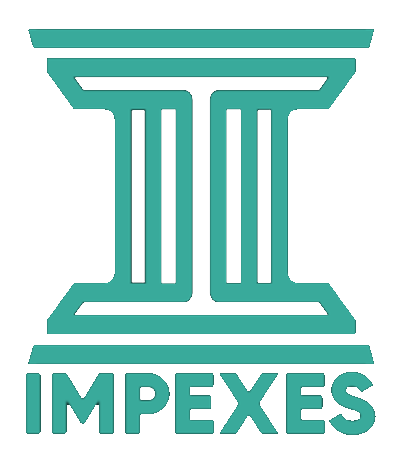The world of cryptocurrency has been a hot topic of discussion for quite some time now. As the popularity of cryptocurrencies like Bitcoin, Ethereum, and Dogecoin continue to rise, governments around the world are considering ways to regulate and tax their trading. In India, the government is reportedly considering levying TDS (Tax Deducted at Source) and TCS (Tax Collected at Source) on cryptocurrency trading.
Rajkotupdates. news has reported that the Indian government is looking at various options to regulate the cryptocurrency market in the country. One such option being considered is levying TDS and TCS on cryptocurrency transactions. This move will not only help regulate the market but also generate revenue for the government.
cryptocurrency trading overview
Cryptocurrency trading is the process of buying and selling digital currencies on various cryptocurrency exchanges. Cryptocurrencies have gained popularity due to their decentralized nature, which means they are not controlled by any central authority or government. The most popular cryptocurrencies include Bitcoin, Ethereum, Litecoin, and Ripple.
Trading in cryptocurrencies involves identifying market trends and making informed decisions based on technical analysis. Traders can either buy a cryptocurrency at a low price and sell it when the value increases or short-sell a cryptocurrency if they believe its value will decrease in the future. Trading fees for cryptocurrencies vary depending on the exchange but are generally lower than traditional stock trading fees.
However, governments around the world are beginning to take notice of this unregulated market and some are considering implementing taxes or regulations on cryptocurrency trading. Recently, the Indian government announced that it may consider levying TDS (tax deducted at source) and TCS (tax collected at source) on cryptocurrency transactions to prevent tax evasion. This move marks a significant step towards regulating cryptocurrency trading in India.
What is TDS/TCS?
rajkotupdates.news : government may consider levying tds tcs on cryptocurrency trading, TDS and TCS are tax collection mechanisms that have been in place in India for a long time. TDS stands for Tax Deducted at Source, while TCS stands for Tax Collected at Source. Both of these taxes are aimed at ensuring that the government receives its fair share of revenue by collecting taxes from different sources.
When it comes to cryptocurrency trading, the government has been considering levying TDS and TCS on such transactions. This move is aimed at ensuring that cryptocurrency traders pay their fair share of taxes to the government. The exact details of how this mechanism will work are yet to be announced, but it is expected that all cryptocurrency exchanges operating in India will need to comply with this new rule.
While some argue that levying TDS and TCS on cryptocurrency trading may discourage investors from investing in this space, others believe that it is a necessary step toward regulating this market. Either way, it remains to be seen how effective these measures will be in curbing tax evasion within the cryptocurrency industry.
Government’s stance on cryptocurrency trading
The Indian government has been quite vocal about its stance on cryptocurrency trading. In the past, it has issued several warnings to investors about the risks involved in investing in this highly volatile market. The most recent development is that the government may consider levying TDS (tax deducted at source) and TCS (tax collected at source) on cryptocurrency trading.
The proposal to tax cryptocurrency trades comes after the Supreme Court overturned a ban on trading cryptocurrencies in India earlier this year. While many see this as a positive move for crypto enthusiasts, others are concerned about how it will be taxed by the government. With no clear guidelines or framework for taxing digital assets, there is still much uncertainty about how these new rules will affect investors.
However, some experts believe that taxing cryptocurrency trades could bring more legitimacy to the industry and encourage more people to invest in digital assets. It remains to be seen what stance the government takes on crypto trading moving forward and how it plans to regulate and tax this emerging market.
Proposal to levy TDS/TCS on crypto trading
The proposal to levy TDS TCS on cryptocurrency trading has been a contentious issue in India’s financial sector for quite some time. While the government sees it as a way to regulate and tax the booming industry, critics argue that this move could stifle innovation and deter investors from participating in the market.
Proponents of the proposal argue that levying TDS TCS would bring cryptocurrency trading under the ambit of taxation laws, making it easier for authorities to track transactions and prevent money laundering. The government also hopes to earn significant revenue through taxes imposed on transactions.
However, many experts have expressed concerns over how this move would impact the already volatile crypto market. They warn that introducing additional taxes could lead to a decrease in demand for cryptocurrencies, which might cause prices to plummet and discourage investment in the industry.
Overall, while there is no denying that regulating cryptocurrency trading is essential, imposing heavy taxes may not be an ideal solution. The government needs to strike a balance between regulation and incentivizing investors without stifling innovation or causing undue harm to those who are already invested in cryptocurrencies.
Potential impact of TDS/TCS on traders
If the government decides to levy TDS (Tax Deducted at Source) and TCS (Tax Collected at Source) on cryptocurrency trading, it may have a significant impact on traders. As per the proposed rule, companies facilitating cryptocurrency transactions will be required to collect taxes from their customers and deposit them with the government. This is likely to increase the cost of trading for investors and reduce their profits.
Moreover, TDS on cryptocurrencies could also lead to more scrutiny by tax authorities. Traders will have to keep track of their investments in digital currencies and report them accurately in their tax returns. Failure to do so could result in penalties or legal action.
However, the impact of TDS and TCS on cryptocurrency trading will depend largely on how it is implemented by the government. If executed effectively, it could help regulate the industry and improve investor confidence. But if not done properly, it may drive traders towards unregulated platforms or force them out of the market altogether.
Conclusion: Future outlook for cryptocurrency regulation
In conclusion, the future outlook for cryptocurrency regulation remains uncertain. While some governments are taking steps to regulate and even ban cryptocurrencies, others are more open to the idea of digital currencies. The recent proposal by the Indian government to levy TDS (tax deducted at source) and TCS (tax collected at source) on cryptocurrency trading indicates that governments may be looking for ways to benefit from this emerging market.
Furthermore, as more individuals and businesses adopt cryptocurrencies, regulators will likely face increasing pressure to provide clear guidelines on how these assets should be treated under existing laws. This could include regulations around taxes, security measures, and anti-money laundering policies.
Overall, while there is still much uncertainty surrounding the regulation of cryptocurrencies, it is clear that they are here to stay. As such, it will be important for regulators to find a balance between protecting consumers and allowing innovation in this rapidly evolving space.
Read Also… rajkotupdates-news-microsoft-gaming-company-to-buy-activision-blizzard-for-rs-5-lakh-crore






